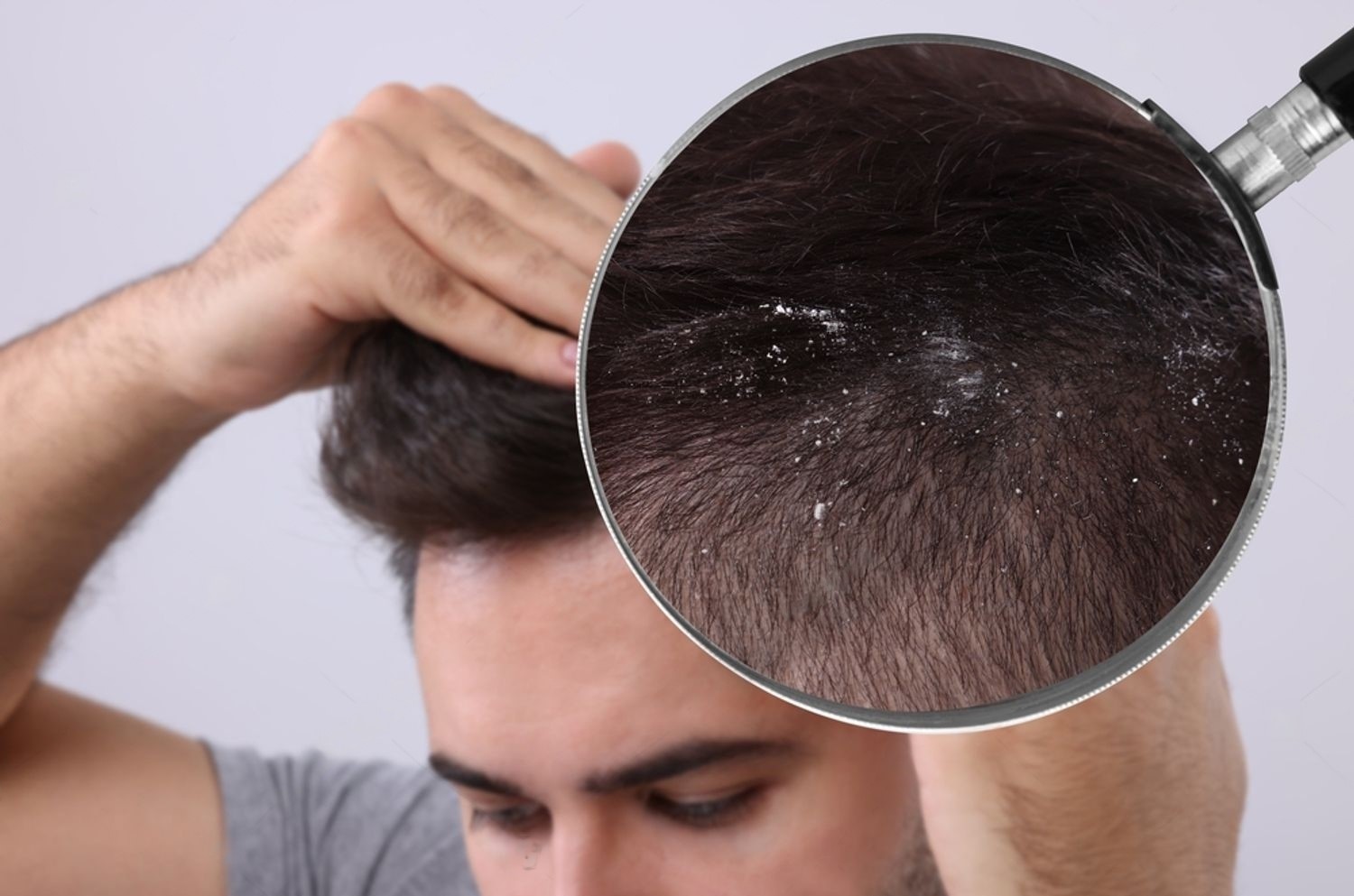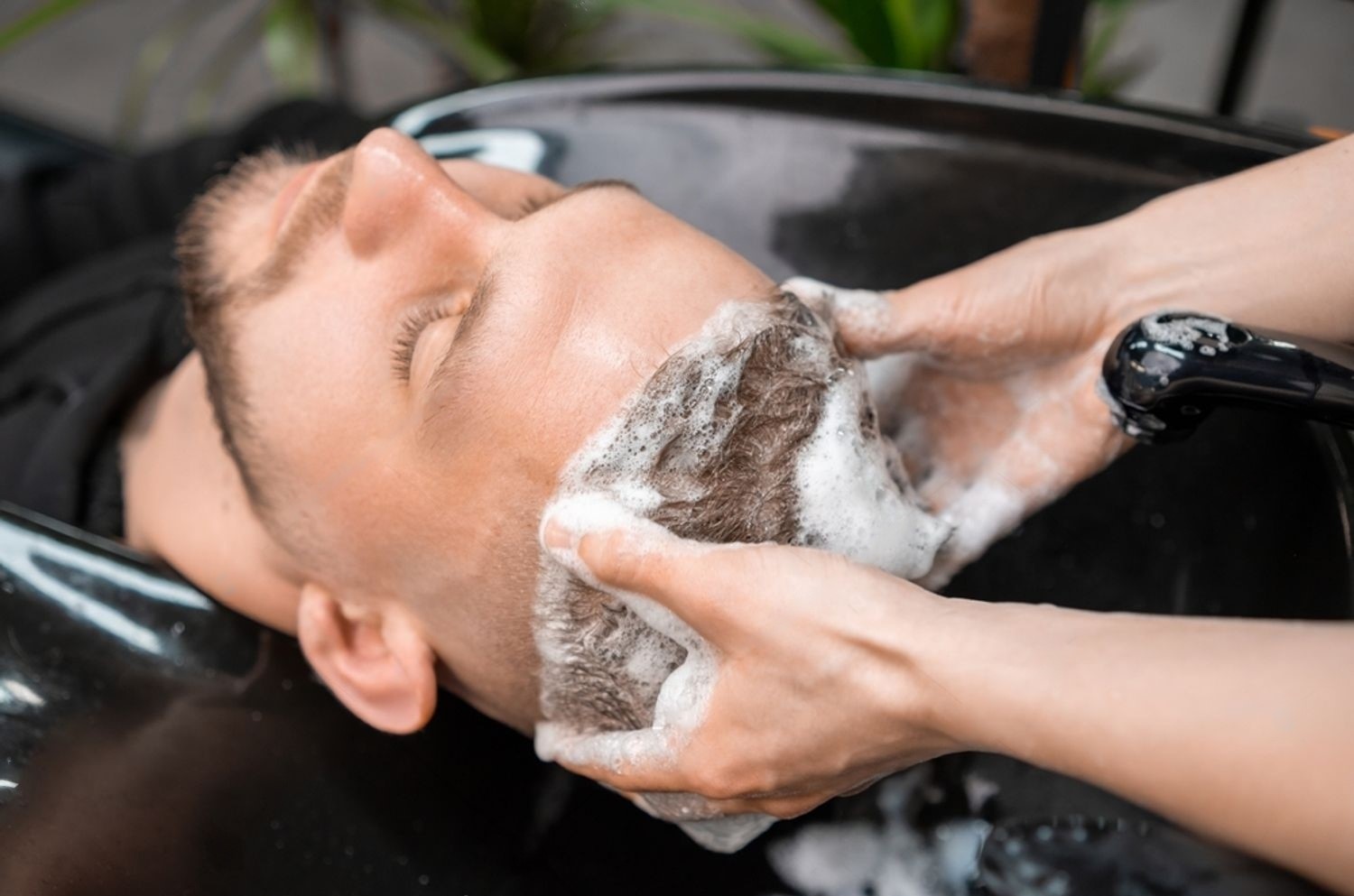Dandruff is one of the most common scalp issues in adults—and yet it’s surrounded by persistent myths and confusion. Two questions often come up: Is dandruff contagious? And can it lead to hair loss?
In this article, we’ll explore the facts behind dandruff, how it affects the scalp, and whether it’s linked to hair fall. Let’s clear up the misconceptions and focus on prevention, treatment, and recovery.
What Is Dandruff?

Dandruff is a non-contagious scalp condition that causes white or yellowish flakes, itching, and sometimes irritation. While often confused with a dry scalp, dandruff typically results in greasy flakes, whereas dry scalp flakes tend to be finer and powdery.
Dandruff is incredibly common—it’s estimated to affect more than 50% of the global population, according to dermatologists. Though not medically serious, it can be persistent and uncomfortable if left untreated.
Causes and Symptoms
While there’s no single known cause, Malassezia, a naturally occurring yeast-like fungus on the scalp, is often identified as the primary trigger. When it grows out of balance, it can irritate the skin and overactivate sebaceous (oil) glands, leading to flakes and itchiness.
Common Symptoms:
- Flaky or scaly scalp
- Greasy white or yellow flakes
- Itching and irritation
- Redness or mild inflammation
- Scalp sensitivity
Does Dandruff Go Away on Its Own?
In mild cases, dandruff can improve with better hygiene and scalp care. But for many, it requires targeted treatment. If the condition lingers or returns often, it might be due to an underlying scalp condition like seborrheic dermatitis or psoriasis—both of which may need professional diagnosis.
It’s best not to ignore long-term symptoms, as they could indicate a chronic scalp imbalance.
Is Dandruff Contagious?
No, dandruff is not contagious. You can’t catch it from someone by sharing brushes, towels, or close contact. It originates from individual scalp sensitivity, oil production, and yeast imbalance—not from direct transmission.
However, there are some rare exceptions:
- Seborrheic dermatitis, a severe form of dandruff, can spread to other parts of the body like the eyebrows and sides of the nose.
- Cheyletiellosis (commonly called “walking dandruff”) is a contagious skin condition in animals (especially dogs, cats, and rabbits) caused by mites. Though rare in humans, it can transfer from pets through close contact.
Does Dandruff Cause Hair Loss?
Dandruff itself does not directly cause hair loss. However, it can indirectly contribute to it in several ways:
- Excessive scratching can weaken hair at the root, leading to breakage or hair fall.
- Chronic inflammation from untreated scalp irritation may affect follicle health.
- Product buildup and poor scalp hygiene can interfere with healthy hair growth.
In most cases, hair loss related to dandruff is temporary and resolves when the condition is treated. If you’re noticing bald spots or prolonged shedding, it’s a good idea to consult a dermatologist or trichologist to rule out other causes.
How to Treat Hair and Scalp Affected by Dandruff

Most mild to moderate dandruff can be managed with a medicated anti-dandruff shampoo containing active ingredients like zinc pyrithione, ketoconazole, selenium sulfide, or salicylic acid. These ingredients help reduce fungal overgrowth, exfoliate flakes, and soothe inflammation.
For individuals with sensitive skin, dermatologists often recommend gentle formulations. Brands like Dr. Eddie’s Happy Cappy have developed over-the-counter shampoos specifically designed for sensitive or pediatric scalps (source). Be sure to follow product instructions and avoid using styling products during treatment.
If symptoms persist beyond a few weeks, or worsen, seek professional guidance.
Prevention Tips: Keeping Dandruff and Hair Fall Under Control
Preventing dandruff flare-ups can be just as important as treating them. Here are practical steps that help:
- Avoid scratching: Use a soft brush to lift flakes gently. Scratching can irritate the scalp and damage hair follicles.
- Don’t overwash: Shampooing too often can strip your scalp of natural oils, leading to dryness and more flaking.
- Limit heat exposure: Air dry your hair when possible. Frequent use of dryers or straighteners can weaken strands.
- Manage stress: Stress can trigger scalp inflammation and hair shedding. Try meditation, yoga, or short walks to relax.
- Be gentle after showers: Pat hair with a towel instead of rubbing vigorously. Use a wide-tooth comb instead of fingers to detangle.
- Avoid harsh styling products: Gels, sprays, and chemical treatments can irritate the scalp and lead to buildup.
Conclusion
To sum it up:
- Dandruff is not contagious.
- It doesn’t directly cause hair loss, but frequent scratching or chronic scalp irritation can lead to shedding.
- With proper scalp care and consistent treatment, most people see improvement in both flaking and hair retention.
If your hair loss continues even after treating dandruff, it’s wise to speak to a specialist. You might be dealing with another scalp or internal health condition that needs attention.
We hope this guide cleared up the confusion and gave you actionable steps toward a healthier scalp. For more insights into scalp care, hair health, and styling solutions, visit other helpful reads on Stylorize.uk.
